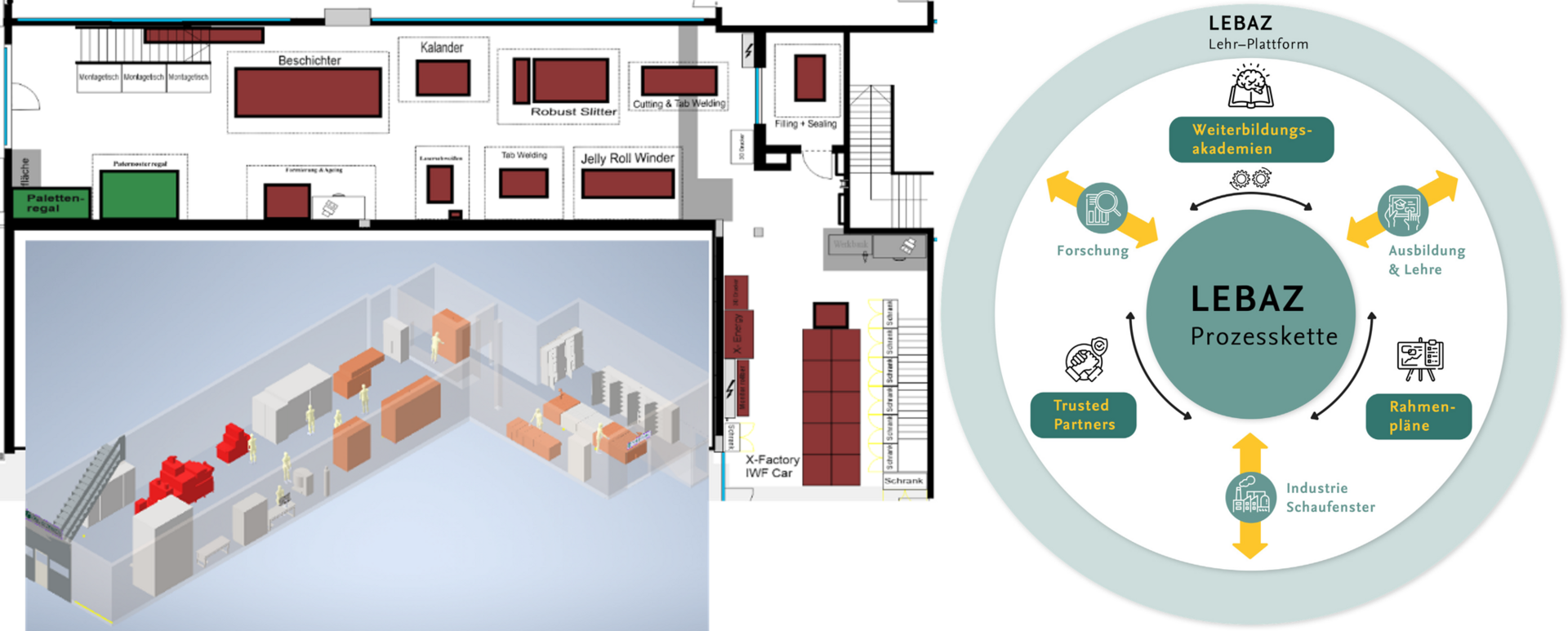LEBAZ –Education Lab for circular battery cell production
Contact person: Thomas Loellhoeffel
Fig.: Areas and equipment of the training location (left); organisation and impact diagram LEBAZ (right) [TU BS; IWF]
The LEBAZ project aims to transfer BLB expertise to training and further education for battery cell production and recycling and to open it up to a broad target group (industry, students, trainees, citizens). This includes the creation of an innovative teaching/learning environment for teaching technical and methodological skills in the form of training courses and seminars in theoretical and practical applications.
- For this purpose, areas of the Institute for Machine Tools and Production Machinery (IWF) will be renovated to create a small-scale test environment for the transfer of knowledge between science and industrial practice. In
this context, the acquisition and construction of modular, physical and hybrid learning stations are being pursued.
The Institute of Particle Technology (iPAT) is responsible in particular for the areas of suspension production, coating and drying, calendering and recycling.
Objectives:
- Creating an understanding of closed material cycles
- as a prerequisite for sustainable battery cell production
- for the further education and training of specialists and teaching
-
Realisation:
- Enabler as a core concept for flexible and sustainable use
- Development of a hybrid teaching and learning environment as a platform for hands-on experiences
- Innovative approach by setting up physical and virtual processes and learning content
- Realisation as a education lab at the interface between teaching and research
- Product and process chain of the education lab:
- Production of functional cylindrical cells (21700)
- Cell format established in the industry (Tesla, BMW)
- Use of an economically and ecologically more sustainable cell chemistry (LFP)
- more cost-effective compared to NMC batteries
- No toxic heavy metals or critical raw materials
-
Project information:
- 3 years duration (01.09.2022 to 31.08.2025)
- BMBF (03XP0479)
- Funding amount: EUR 3,672,818.03 (TU BS)
Project partner:
